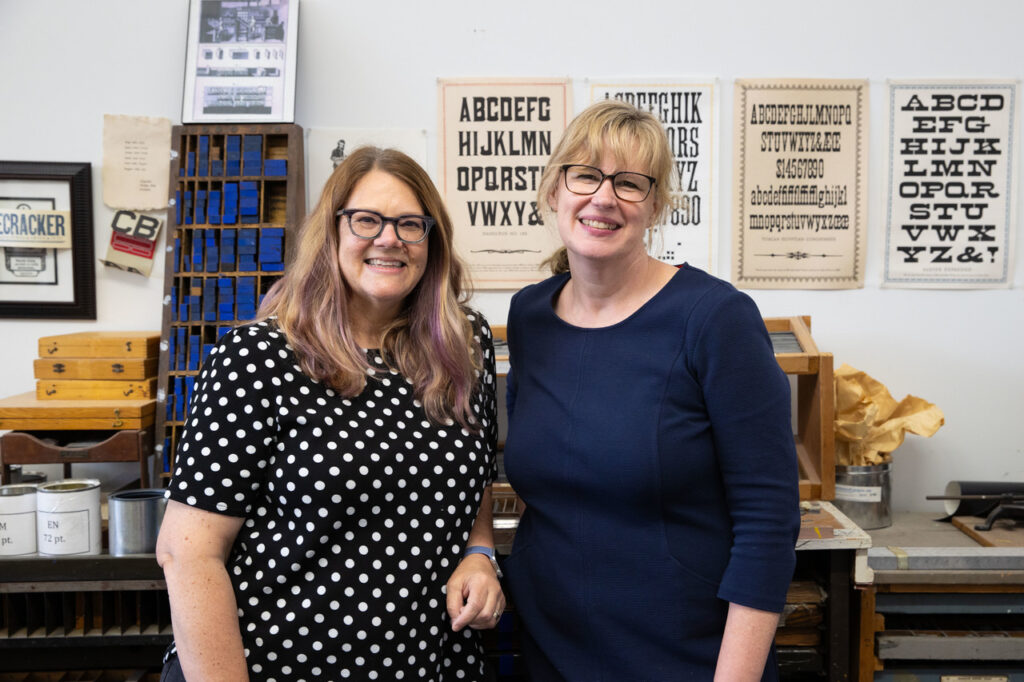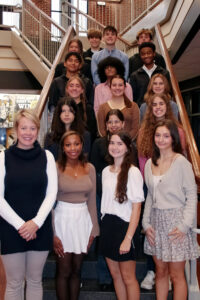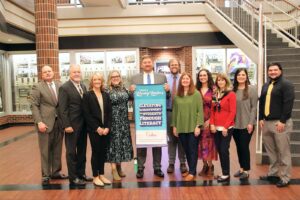by Julie Lineback
With a Pack that is nearly 700 faculty strong, UWG isn’t just a first-choice university for students. It’s a collaborative and supportive environment for academics from around the world.
And thanks to the University of West Georgia Institute of Faculty Excellence’s mentorship program, it’s now even easier for new faculty members to learn the ways of the Wolf from their more seasoned colleagues.
“UWG’s faculty mentorship program aims to foster career and interpersonal success as well as a sense of belonging for faculty across campus,” said Lisa Connell, mentoring fellow and professor of French. “It is designed not only to support new faculty as they transition to life at UWG, but also provide professional development opportunities for established faculty through a range of activities focused on the scholarship and best practices in mentorship.”
One such duo is mentor Stephanie Smith and mentee Cynthia Lollis. Both art faculty, the pair was matched when the start of the program coincided with the hiring of a new colleague, Lollis, in the printmaking area where Smith mainly worked.
“Printmaking is inherently collaborative,” Smith explained. “We work in a shared studio, use the same equipment, and tend to be open about our research and inquisitive about what our colleagues are doing and how they’re doing it. Cynthia has a depth of educational experience, so we had pedagogical discussions that led to my reflecting on my methods while assessing what’s working correctly, what could be changed and what new opportunities are possible.”
With Smith’s reputation in the Atlanta art community preceding her, Lollis said she’d looked up to Smith for many years. When Connell touted the program’s benefits at new faculty orientation, Lollis hoped for a match with Smith.
“Stephanie is a visionary,” Lollis expressed. “I knew I had a lot to learn from her. From the very start, she helped me acclimate to UWG, ensuring that my transition was a smooth one.”
Smith said it was rewarding to help minimize the hurdles in starting a new position.
“Cynthia is a wonderful colleague, and I appreciate how generous she was in accepting guidance and for being so hands-on,” she added “Being open and generous and learning where someone’s perspective allows them to be vulnerable and helps with communication. This mentoring program promotes that open system of communication so issues can be discussed productively.”
Together, the pair have shared a symbiotic relationship that promotes collaboration, inspires creative ideas and helps both parties build lasting connections. Joint projects have included a book/print exchange, a student art sale and printmaking demonstration at the Arts Festival of Carrollton, and the development of future study abroad programs to Italy and Belgium for students to witness the historical and contemporary influence of printmaking and bookbinding.
The entire experience has helped Smith and Lollis redefine the modern meaning of mentorship – one that supports, challenges and grows over the lifetime of an effective partnership.
“This changed my perspective about what’s possible in mentorships,” concluded Lollis. “I became more invested in what I could learn, and more importantly, what I could do in collaboration. I feel challenged, trusted and supported academically and professionally. Because of this program, I now have a wider and stronger network of people who I can count on, as well as collaborate with.”
To participate in or for more information about UWG’s Faculty Mentor Program, please visit the Institute for Faculty Excellence’s website or email Lisa Connell.

















